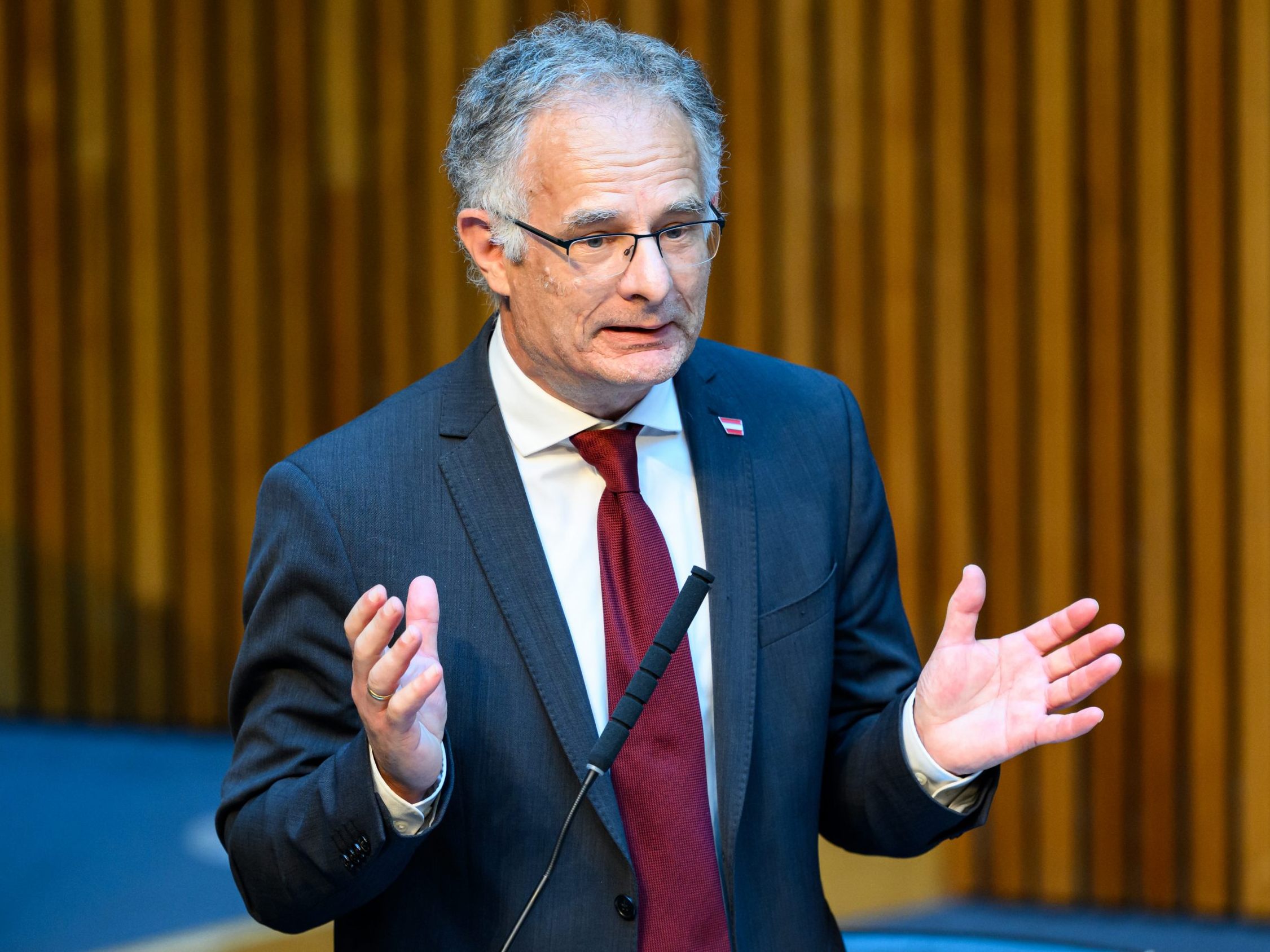Marterbauer confident about solution to intervention in food prices

Finance Minister Marterbauer ruled out reducing food prices by lowering VAT, as the current budget situation does not allow for it. On Monday, in an interview with the "Salzburger Nachrichten," he described price interventions as "central in a crisis of rising prices." He specifically mentioned Spain as a model. In the Ö1 interview, Marterbauer also expressed his intention to examine international examples. Regarding the coalition partners ÖVP and NEOS, he was confident that a solution would be found. His responsibility as Finance Minister is to point out the danger of rising inflation.
ÖVP cautious about intervention in food prices, NEOS critical
From the largest coalition partner ÖVP, there was at least no direct no. "If prices rise sharply due to the current global political threat situation, we will take countermeasures," read a statement from the party headquarters on ORF radio. "High inflation rates, as we know them from the past, burden people and the economy and will not be accepted." However, ÖVP Farmers' Union chief and parliamentarian Georg Strasser warned in writing in the afternoon against distorting the market through "artificial price interventions": "Anyone who turns the price screw without looking at the real costs endangers the security of supply in the country."
On Tuesday afternoon, Agriculture Minister Norbert Totschnig (ÖVP) further emphasized: "International examples show that state price interventions in food can have negative consequences. Hungary has caused enormous shortages and empty shelves with its price intervention because no one delivered at those prices. The current price debate must not be carried out on the backs of agriculture, as domestic farmers are already under high cost pressure."
The NEOS are not pleased with the Finance Minister's proposal. "The most important intervention of politics in the market, from our point of view, is finally to ensure more competition and transparency and to shift the reform engine into the next gear," said a statement to the APA. "State bread prices will not be able to solve this problem." FPÖ General Secretary Michael Schnedlitz was pleased that Marterbauer is taking up a "long-standing freedom demand." However, since there is no concrete proposal from the Finance Minister on the table yet, it cannot be assessed, said Schnedlitz: "If it makes sense, we will get involved." As is often the case, the "devil is in the details."
Trade representatives against intervention in food prices
In the food retail sector, the idea implemented by other EU countries during the inflation crisis is met with rejection. Christian Prauchner, chairman of the Federal Committee for Food Retail in the Austrian Economic Chamber (WKÖ), points out in a statement the price increases "in agriculture, processing, logistics, and on international commodity markets." Additionally, government regulations and higher wages are driving up costs for supermarkets, which is reflected in the prices.
The trade association also spoke out "vehemently" against state price interventions on Tuesday. The environmental organization WWF, on the other hand, called for measures against food waste to combat rising prices. The farmers' association also supported this. Furthermore, "more cost transparency along the value chain" is needed. Strasser: "As long as there is so little transparency along the value chain about who gets how much of the pie, we don't need to discuss state market interventions."
Intervention in Food Prices: Support for Marterbauer from Within
The Chamber of Labor (AK) called the proposal of its former chief economist Marterbauer "sensible" and demands "a price database, an effective price law, and an independent anti-inflation commission." Similar to the food retail sector, trade association, and farmers' association, the problem of so-called territorial supply restrictions was also pointed out. These restrictions imposed by certain large manufacturers in the EU make it difficult or impossible for retailers to buy products in one member state and resell them in another. This can lead to higher prices being demanded for the same product in Austria than, for example, in Germany.
ÖGB President Wolfgang Katzian calls for a "powerful anti-inflation commission. (...) This would not burden the state budget but would be an effective means to prevent unjustified price increases, which we all unfortunately have to observe daily," said the union leader on Tuesday via a statement. SPÖ Lower Austria leader Sven Hergovich also welcomed the finance minister's "initiative" in a statement. "Food should not be a luxury," Hergovich criticized.
Marterbauer had referred to "sharply increased" food prices in an interview with the newspaper "Salzburger Nachrichten" ("SN"). "The lower income groups spend half on housing, household energy, and food. Prices must not rise to this extent, otherwise, we have to consider how we intervene," the minister is quoted by the newspaper. He wants to "discuss together with the coalition partners and see how we can come to solutions" that all three can represent.
(APA/Red)
This article has been automatically translated, read the original article here.





